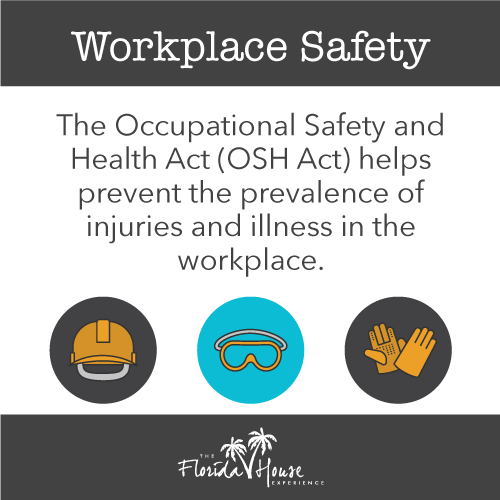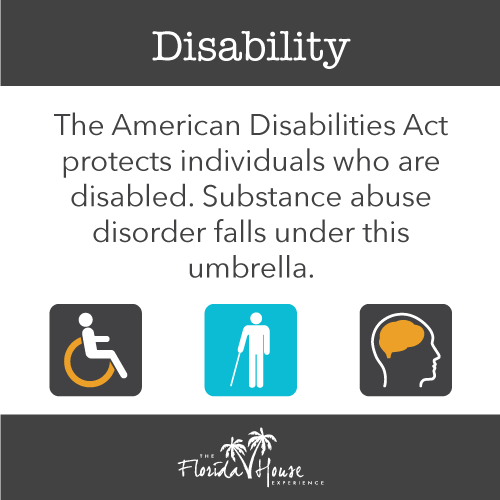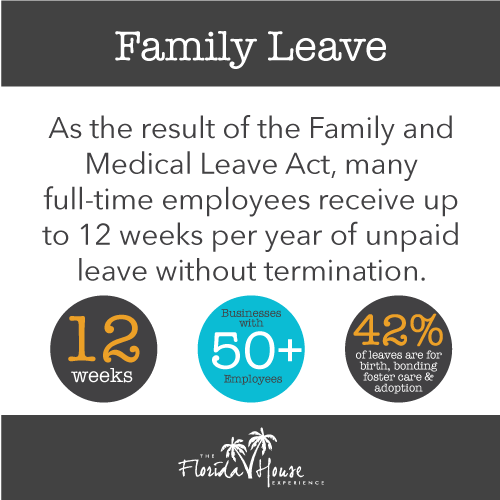
Drug and alcohol addiction is invasive. It impacts every area of your life, including your employment. Though the stereotype of a ‘drug abuser’ may be that they are unable to hold down jobs or maintain responsibilities, that’s not usually the case. A U.S. News & World Report article indicates that an estimated 76 percent of those who have an addiction are in fact employed. Do you have to tell your employer you’re getting help for an addiction? And, if you want to do so, how can you open that conversation?
At FHE Health, we believe creating a healthy future means pursuing opportunities to improve not just your health but your relationships. Our team works with you to support you as you navigate difficult situations like this. Yet, it’s helpful to know that most employers are likely to work closely with you to help you recover.
Do You Have to Tell Your Employer About Your Addiction?
It’s not uncommon to want to avoid talking to your employer about addiction. Whether or not you should do so depends on your company’s policy. Before you say anything, take the time to review your company’s drug and alcohol policy. This may be in your company handbook or on the company’s employee website. You can also ask your human resources manager for the policy.
Some employers make communicating this information vital. Others want to be able to help you. However, you should know what the policy is as well as what the consequences can be for you.
Understanding Your Rights
 The Americans with Disabilities Act offers some limited protection for you. It may be able to protect you from discrimination based on your chemical dependency. However, if you are using illegal drugs right now, employers have the legal right to restrict you from working. This is true because allowing you to work could endanger the lives of other people should you cause an accident. If you feel your rights under this law have been violated, you may wish to speak to an attorney. However, in most cases, employers have the ability to discipline and discharge you, or deny employing you, if your condition adversely impacts your ability to do your job.
The Americans with Disabilities Act offers some limited protection for you. It may be able to protect you from discrimination based on your chemical dependency. However, if you are using illegal drugs right now, employers have the legal right to restrict you from working. This is true because allowing you to work could endanger the lives of other people should you cause an accident. If you feel your rights under this law have been violated, you may wish to speak to an attorney. However, in most cases, employers have the ability to discipline and discharge you, or deny employing you, if your condition adversely impacts your ability to do your job.
On the other side is the fact that communicating with your employer about your substance abuse disorder can help protect your job. Under this law, you cannot be terminated if you enter rehab for your needs (although there are some limitations to this).
How Can You Begin a Conversation with Your Employer?
In most situations, if you’ve used alcohol or drugs at work and have come into contact with your employer, he or she probably knows something is wrong. Though you may think you’re hiding it well, that’s rarely the case. Take a deep breath.
Next, plan to have a conversation. That is, sit down and tell your employer what is happening, why you think it is happening and that you’re seeking help for it. Most often, your employer will discuss the implications of your use on your job performance. Everyone reacts differently to information like this. Your goal is not necessarily to make the employer feel good about what has happened or to receive support. Rather, you are communicating what your needs are.
What Resources Exist to Help Protect Your Job Through Treatment?
 What type of support is available to you? While speaking to your employer, ask if the company offers any type of substance abuse care or support. Your health insurance may cover these costs. Some companies recognize the difficulties of stress on the job and provide supportive services. Ask your employer what resources they may have for you.
What type of support is available to you? While speaking to your employer, ask if the company offers any type of substance abuse care or support. Your health insurance may cover these costs. Some companies recognize the difficulties of stress on the job and provide supportive services. Ask your employer what resources they may have for you.
Understanding EAPs
Employee Assistance Programs, or EAPs, can be one tool your employer offers to you. The goal of this program, if available through your employer, is to provide you and your family with the support necessary to help you to get the care you need while also helping you to maintain the requirements of your job. Ask your employer for information on the EAP available so you can take advantage of it.
Understanding Unions
Addiction is not uncommon any longer. As a result, many unions have resources in place to help their members to get the help they need regarding care. If you’re a union member, start there. Before speaking to your employer, seek out support from your union representative. It’s the job of your rep to help you to communicate concerns like this to the employer. Having that type of supportive help by your side can give you the courage to move forward.
Also, find out if the union offers any type of supportive services for you. Some larger unions tend to offer more in-house and third-party resources. And remember, what you tell your union rep or your employer about your health is confidential. Ask them not to spread information about you; they should be working to help you.
Understanding FMLA
 The Family Medical Leave Act is one of the most important tools you have when it comes to protecting your job. This is a federal law that gives you the right to request up to 12 weeks of time in any calendar year for medical needs. During this time, your employer cannot discharge you from employment or demote you. Rather, they must hold your position as long as you’re receiving active care from a recognized resource. You may need a referral from a medical provider for this.
The Family Medical Leave Act is one of the most important tools you have when it comes to protecting your job. This is a federal law that gives you the right to request up to 12 weeks of time in any calendar year for medical needs. During this time, your employer cannot discharge you from employment or demote you. Rather, they must hold your position as long as you’re receiving active care from a recognized resource. You may need a referral from a medical provider for this.
FMLA does not guarantee you will receive a paycheck during this time. That’s up to the employer’s discretion. It does protect your benefits, including your health insurance, for that time-frame. This is an important tool for helping you to get the care you need if you are ready for detox. You cannot take FMLA for any reason — it must be due to your or your immediate family’s medical need. At FHE Health, we can help you apply for this type of job protection.
How FHE Health Is Ready to Help You
Detox, counseling and both inpatient and outpatient care are just the beginning of your recovery from substance abuse. FHE Health has the tools and the professionals to help you to manage employer interactions and requirements. We can walk you through the steps of working with your union, your human resources department and your management team. Contact us today to learn more about our programs and how they can benefit you.






